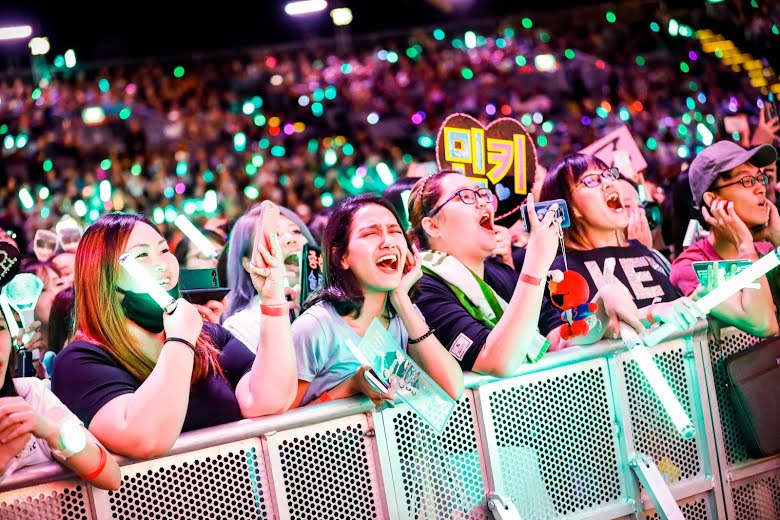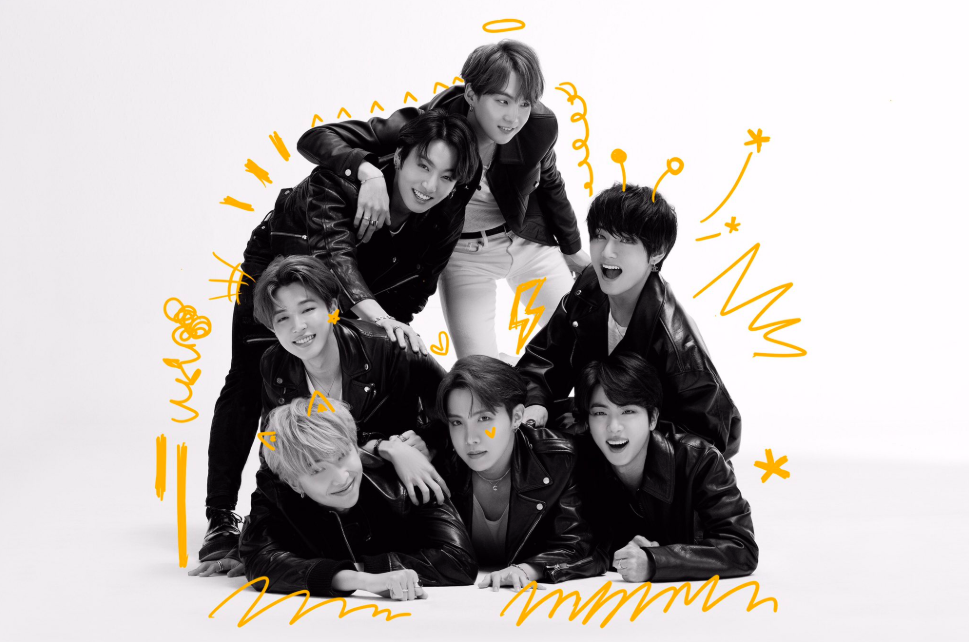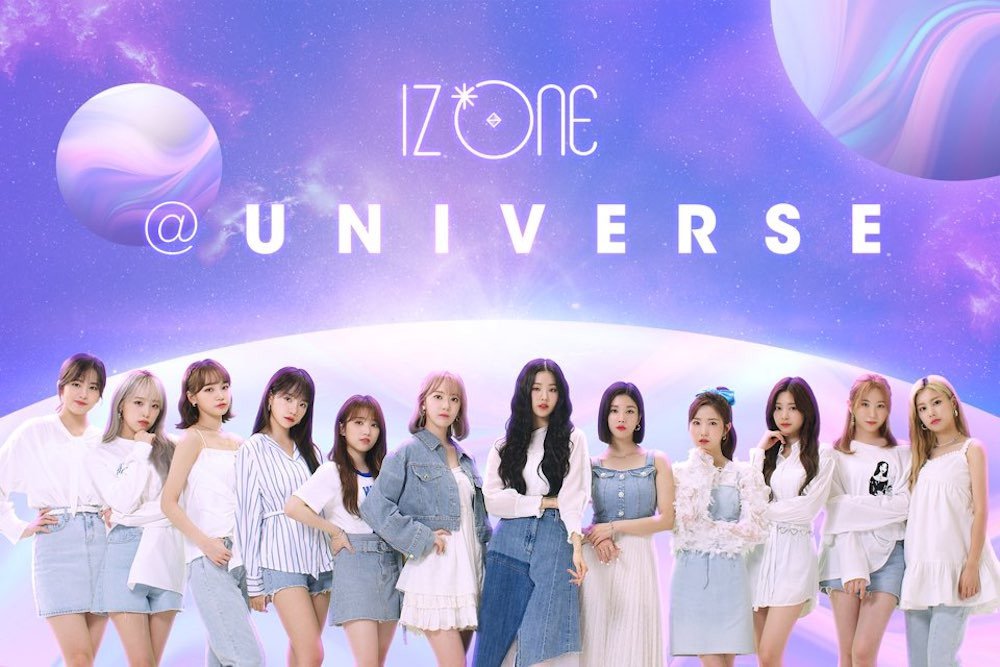
One of K-pop’s most notable traits is the parasocial, pseudo-close relationship between fans and idols. Besides being singers and dancers, idols are trained to provide immaculate service to their fans and show only their best sides. They create and maintain their image by evoking the impression of being kind, polite, and caring beings. In return, fans go to great lengths to support idols, praising their efforts and pointing out their impeccable personality. How do fans and idols interact with each other outside of events like concerts and fansigns? For a long time, the communication and interaction usually took place in so-called fancafés on third-party Korean web portals. Companies used South Korea’s second-largest portal, Daum, to establish these fancafés, which besides sharing performance or concert information, connected idols with fans on a bulletin board.
However, with the achievement of international popularity and worldwide expansion, the K-pop landscape has changed greatly over the years. Many groups have gained international fan followings, which sometimes are larger than their Korean fanbases. Fancafés or platforms that were previously entirely in Korean are of no particular use anymore. This remarkable development is being reflected in the establishment of new platforms, with VLive asserting itself as the most notable one since its release in 2015. Offering service in both Korean and English, VLive allows idols to stream live chat videos and sessions at any given moment, during which fans can actively comment and ask questions. Over the last few years, many idols have additionally launched Twitter accounts to interact with fans through selfies, song covers, or simply tweets.
The numbers clearly speak for K-pop’s popularity: Idol groups regularly break records for the most tweets or likes and occupy top ranks in Twitter’s year-end lists. Many idols have also opened up their own social media accounts to share glimpses of their everyday life.

These diverse platforms share one common feature: they are very accessible to fans around the world. English language aside, everyone can easily sign up, subscribe, make use of the services, and comment on idols’ posts. All in all, the extent to which idols and fans are able to interact has considerably changed as the forms and frequency have risen. Fans can ask idols questions and will occasionally get an answer, while idols keep fans updated about their everyday life or their schedule. For fans, this evokes the feeling of being closer to idols more than ever and knowing more about their personalities.
A major development took place in June 2019 when Big Hit Entertainment launched the app and web platform Weverse. Weverse was promoted as a new form of artist-fan communication, content sharing, and purchase by combining several features that were previously scattered over several websites and apps, into one major platform.
In late 2020, Universe emerged as the next platform, when it was announced by Korean game publisher, NCSOFT. Not only does it bear a strikingly similar name to Weverse, it is also almost analogical in its service. Universe will go into service in 2021. As of now, it aims to facilitate artist-fan interaction through diverse online and offline activities.
Either way, the interaction between idols and fans has been substantially transformed through services like VLive and Twitter, and another change comes with the launch of platforms like Weverse and Universe. What does this mean for fan-idol relations and what distinguishes company-owned, centralized platforms from the usual ones? For now, it seems to be a blessing for both parties. While fans are more connected to their idols through diverse ways, companies have both full control over the platforms and generate huge revenues.

A closer look at Weverse and Universe clearly highlights what sets these two platforms apart. Weverse was launched in 2019 by Big Hit Entertainment subsidiary beNX and promoted as a new form of artist-fan communication, online space for fan-fan engagement, content sharing, merchandise store and social media platform. Through combining several features into one, it became the first company-owned platform of its kind. Besides, its integrated translation service for international fans has earned praise.
Until Big Hit Entertainment’s acquisition of several labels, Weverse primarily offered a variety of BTS content, comprising the group’s unpredecented international fan following and far reach around the globe. Now, Weverse provides content from other popular idol groups like Seventeen, GFriend and NU’EST. However, artists from other labels (Sunmi) and international artists (Gracie Abrams) have further joined the platform underlining other companies’ interest in the all-encompassing functions and content monetization of Weverse. While the registration on Weverse is entirely free, a membership that costs 30$ a year gives fans access to ticket pre-sales and merchandise.
However, Weverse does not come without any downsides. Fans have often complained about app crashes due to high traffic, and faulty translation service. Moreover, Weverse practically allows everybody to sign up and leave comments, raising the probability of hate speech and comments towards both fans and artists. From a macroscopic point of view, Weverse contributes to the strengthening of the pseudo and parasocial artist-fans relation; fans feel closer to idols and consume everything they and their company offers.

Universe, on the other hand, has so far only been announced to launch in early 2021, but already boasts an impressive artist roaster with names like Monsta X, I*ZONE, Ateez, and Cosmic Girls. Similar to Weverse in its services, it has additionally announced the integration of IT and AI technologies through voice synthesis and character scanning. AI technology is a rather untouched field in K-pop that has recently come into focus with the debut of Aespa and is bound to be impactful in the future. Moreover, Universe will reportedly run in more than 180 countries in three languages, underlining the worldwide reach it aims for.
What is, however, really conspicuous about Universe is the company behind it: it was developed by NCSOFT, a Korean game publisher, which is not only responsible for a number of popular games including Lineage and Guild Wars, but has also established numerous subsidiaries and offices around the globe. Therefore, NCSOFT seems to have adequate resources and expertise to bring K-pop to an even larger global scale. More than that, the foray of an IT company into the K-pop scene translates to other business sector’s awareness and interest in the potential the Korean music scene holds.

How essential online platforms have become was demonstrated by the grave effects of the Covid-19 pandemic on the K-pop industry. As people gatherings became impossible, offline events like concerts, fansigns, and festivals were entirely moved to online formats. To make such great changes in a limited time was a big challenge for K-pop companies, but one they mastered surprisingly well and one that anticipates the future of communication in K-pop.
In October of this year, BTS performed an online concert to almost one million viewers, for which fans could in advance purchase HD or 4k resolution tickets on Weverse. The concert proved to be a huge success for Big Hit Entertainment. Although no official numbers have been announced, the company is likely to have earned around 50 million USD through a production they have completely retained control of. The smooth flow of the concert and the high-budget production earned praise and made the continuity of online concerts a possibility that has to be taken into account. Such online events on Universe are not entirely groundless, as the pandemic continues to dominate the world and offline gatherings seem unlikely for some time.

To sum it up, both Weverse and the upcoming Universe stand out because they are highly innovative. Prior to these platforms, fans’ comments were usually scattered over predominantly Korean websites and apps. Now, with the globalization and international popularity of K-pop, platforms combine conventional fan services with new technologies and formats to target fan bases and facilitate fan-artist interaction. With all services having been molded into one, the path of interaction and consumption has been greatly simplified for fans around the globe. Simultaneously, companies do not depend on third parties anymore.
What does this mean for fan-idol interaction? Some idols cheer on fans and share advise, even in English. This is astonishing, considering many are not fluent in the language. With the evolution of fan platforms ongoing, the implication this has for the fan-idol relation is, for now, positive. On the one hand, communication gives more insight into idol’s everyday life and helps them break out of their immaculate image. On the other hand, fans are more connected to and updated about the idols they like. This great dedication between artists and fans is one of K-pop’s essential features, one that it should not lose.
(Elite Daily, Korea Herald [1], [2], [3]. Images via Google Play Store, Korea Herald)


